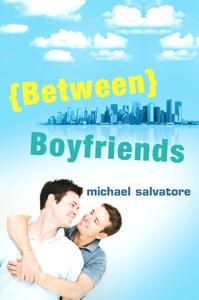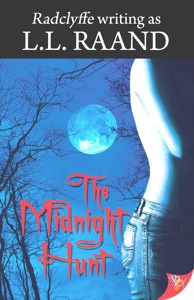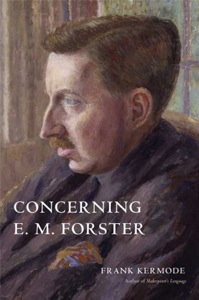Arts & Entertainment
Bookmarks
Published Thursday, 03-Jun-2010 in issue 1171
{Between} Boyfriends
by Michael Salvatore
Kensington Books, 328 pages, $15 paper
Tart tongues, caustic commentary, the objectification of less-than-perfect bodies, an overbearing mother, an absent – well, dead – father, angst about aging, revulsion at the sight of a wee penis, men yearning for love but settling for sex: This saucy soap opera of a novel is a queer-boy bitchfest, stuffed – hilariously so – with every possible gay male stereotype. Salvatore’s outrageous debut, rather politically incorrect but quite comically adept, serves up at least a grin on every page, if not a giggle; it’s the very epitome of a guilty reading pleasure. At 33, Stephen Bartholomew Ferrante remains broken hearted over being abruptly dumped by the man he’d planned to live with forever. Drifting from one one-night stand (the penis! the horror!) to another, his spirits are buoyed by a circle of sassy friends who gather at the neighborhood Starbucks to dish dirt, ogle boys and show off their studs-de-jour. Does Stephen find the one true love for which he longs? Happily, the forever-after (perhaps) ending comes as no surprise.
The Midnight Hunt
by Radclyffe writing as L.L. Raand.
Bold Strokes Books, 292 pages, $16.95 paper
As “Radclyffe” she has written 19 books in three different series and 14 more generic lesbian romances, and has edited or co-edited another dozen erotic and romantic collections. This new series is quite a change of pace. It’s a new genre, and thus her new credit is: “L.L. Raand.” Here, the prodigiously prolific author crafts a world where werewolves and vampires, to say nothing of “Mages, Fae and Psi,” other shadow-world races destined to make appearances in planned sequels, are coming out of the closet, so to speak, demanding tolerance from and acceptance by the human race. The first of the Midnight Hunters series – book two, Blood Hunt, is previewed – focuses on Sylvan, the all-powerful Alpha of the Adirondack Timberwolf Pack, charged with negotiating a “preternatural protection bill” with human politicians. She connects, climactically, with medic Drake McKennan, soon to transform from human to Were. Character introductions are crammed into a busy book one, leaving scant room for Raand to explore the ramifications of interaction between preternaturals and humans – but that’s the sort of meaty exposition that a continuing series can embrace.
Hot Stuff: Disco and the Remaking of American Culture
by Alice Echols
W.W. Norton, 338 pages, $26.95 hardcover
Though there are some pedantic bramble patches, for the most part Echols, author of a book about Janis Joplin, keeps it breezy in this academia-lite assessment of disco’s glitterball years. Her sociological reach is broad, encompassing: black masculinity; the early place and later exclusion of women in disco dance clubs; the unexpected impact and prescience of the film Saturday Night Fever; and disco’s roots in and influence upon other musical genres. But, deservedly, the role of gay men in crafting the music and shaping the spaces where both Manhattan’s social elite and the bridge-and-tunnel crowd played is prominent. In disco’s earlier years, says the author, queers were more or less at one with the music and with each other; only with the rise of “gay macho” did racist and sexist attitudes intrude. In a notable personal aside, Echols recalls her younger days spinning music at the Rubaiyat disco in Ann Arbor, where one Madonna Ciccone is said to have danced before abandoning university for New York and eventual stardom.
Concerning E. M. Forster
by Frank Kermode
Farrar, Straus and Giroux, 192 pages, $24 hardcover
Based partly on a talk by the biographer at the annual Clark Lectures at Cambridge’s Trinity College – where Forster himself discussed “Aspects of the Novel” in 1927 – this is a pithy consideration of a writer honored most queerly for a novel (Maurice) that he hid away for more than 50 years, and which was published only after his death in 1970. Of that book, Kermode has little to say, except to note that Forster’s unromantic homosexuality – his longest relationship was with a married man – is what blocked his writing. After publishing five novels between 1905 and 1911 (as well as suppressing Maurice), Forster’s creativity stalled until 1924, when he published A Passage to India, his last novel. There followed only essays and reviews. The lecture portion of this intelligently authoritative study dwells on Passage, on Forster’s affinity for classical music, and on his book about writing, Aspects of the Novel. What follows, in a more free-form style, is Kermode’s mostly admiring take on a majestic writer’s puzzling failure to realize his full potential.
Footnotes
Queer award season kicked off April 29 with the presentation of literary honors by The Publishing Triangle, a New York-based organization of publishing professionals. Lori Ostlund won Debut Fiction for her story collection, The Bigness of the World; the Lesbian Nonfiction winner was Rebecca Brown for American Romances: Essays; the Gay Nonfiction winner was James Davidson for The Greeks and Greek Love; and the Lesbian and Gay Poetry winners were Stacie Cassarino for Zero at the Bone and Ronaldo V. Wilson for Poems of the Black Object. Sebastian Stuart, a 60-year-old debut novelist, took the Ferro-Grumley Award for Fiction with The Hour Between...
One month later, the Lambda Literary Foundation presented its awards – for the 22nd year – at a Manhattan ceremony that also honors novelist, playwright and political gadfly Larry Kramer (Faggots, The Normal Heart) and comedienne and social commentator Kate Clinton (What the L, I Told You So) with Pioneer Awards. The “Lammys” will be awarded in 23 categories, with stand-up comedian Eddie Sarfaty (author of the memoir Mental: Funny in the Head) as master of ceremonies. Presenters include Rachel Kramer Bussel (erotica), Linda Villarosa (LGBT nonfiction), and Sarah Schulman (LGBT studies). As always, the two major queer awards don’t duplicate each other’s finalists very much: only James Davidson, Stacie Cassarino, and Lori Ostlund, among Publishing Triangle winners, are finalists for a Lammy. Tickets for the ceremony are $100, information at the revamped Lambda Literary online community, lambdaliterary.org.
Featured Excerpt
Operating as private clubs, as many gay discos did, allowed them not only to weed out the “wrong” kind of men but also to exclude women legally. Women had partied at the earlier discos, but at many of the chicest gay clubs they soon discovered they were viewed as a nuisance – a relic of the bad old days. When the Sanctuary turned gay in the wake of Stonewall, the owners sacked many of their female employees because they no longer wanted women there. Indeed, during the filming of Klute, actress Jane Fonda got into an argument with the club’s owners because they would not allow lesbians inside.
-from Hot Stuff, by Alice Echols
|
|
Copyright © 2003-2025 Uptown Publications




